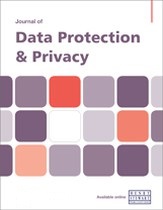The conundrum of personal data protection in Malaysia
Abstract
The issue of privacy and personal data protection has been a protracted conflict between the Malaysian Government and its citizens. Rapid technological progress has created challenges in ensuring that Malaysia’s Personal Data Protection Act (PDPA) is robust enough to protect personal and sensitive data. The Malaysian PDPA faces criticism for failing to adapt to these changes. The PDPA was enacted and implemented in Malaysia in 2010. Despite being in existence for 15 years, the legislation has faced ongoing criticism due to its deficiencies in safeguarding the rights of individuals and the government’s interests. This paper aims to evaluate the dilemma arising in personal data protection due to the gap between existing legal measures and hindrances of the enforcement of personal data. The qualitative research methodology, which includes doctrinal and comparative legal analysis of primary sources, reveals that protecting personal data is an ongoing and formidable challenge. The authors argue that the PDPA 2010 requires a comprehensive overhaul and a greater emphasis on a collaborative approach between private and governmental entities to safeguard the interests of citizens as well as the government’s need to access data for social justice purposes. This paper is also included in The Business & Management Collection which can be accessed at https://hstalks.com/business/.
The full article is available to subscribers to the journal.
Author's Biography
Saslina Kamaruddin Dr Saslina Kamaruddin is a Senior Lecturer at the Faculty of Management & Economics, Universiti Pendidikan Sultan Idris (UPSI), Malaysia. She obtained her Bachelor of Law & Commerce (Hons.) from the Management & Science University, her Master of Law and her PhD in law from the Universiti Teknologi MARA. Currently, she teaches business law, company law and securities law to undergraduate and postgraduate students. She also supervises postgraduate students in data privacy and security within the sphere of artificial intelligence technology. Saslina’s areas of interest are anti-money laundering, terrorism preventive laws and information technology law, focusing on Al-enabled services and their legal implications. She is a regular reviewer for a few Scopus international law journals and an editorial board member of the Journal of Social, Humanity, and Education. She was also entrusted with devising a policy for ISO 37001 on the bribery Management System for the University. Saslina’s books include Business and Hospitality Law in Malaysia and Introduction to Administrative Law in Malaysia and she regularly publishes in local and international journals on the above-mentioned subject areas.
Islombek Abdikhakimov is a Lecturer in Cyber Law at the Cyber Law Department, Tashkent State University of Law. He holds a Master of Laws (LLM) from Penn State Law with concentrations in Commercial Law and Corporate Law and Practice. Islombek commenced his legal career at Tashkent State University of Law, where he continues to contribute to academic excellence in the field of cyber law. His expertise encompasses the intersection of digital governance, commercial law and corporate legal practice, bringing both international legal knowledge and practical insights to his teaching and research endeavours.
Zaiton Hamin Dr Zaiton Hamin is an Associate Professor of Law at the Faculty of Law, University Teknologi MARA (UiTM) Shah Alam for the last 34 years. She obtained her LLB (Hons.) from North London University, LL.M from King’s College, University of London and PhD from University of Leeds. Currently, she teaches information technology law, computer-related crimes and legal aspects of forensic accounting. Zaiton regularly publishes articles on information technology law and criminal justice issues in local and international journals and is a reviewer of several high-impact journals on such laws.
Nadia Nabila Mohd Saufi is a Lecturer in law at the Faculty of Business Management & Professional Studies, Management & Science University. She is also a doctoral candidate in criminal justice and constitutional law, focusing on policing peaceful assembly in Malaysia and the United Kingdom. Nadia obtained her Bachelor of Legal Studies (Hons.) and Master of Law from the University Teknologi MARA. Her interests are crowd policing, peaceful assembly, hate speech, terrorism-related law and artificial intelligence law, alongside her doctoral thesis. Nadia frequently publishes in local and international journals on the above-mentioned subject areas.
